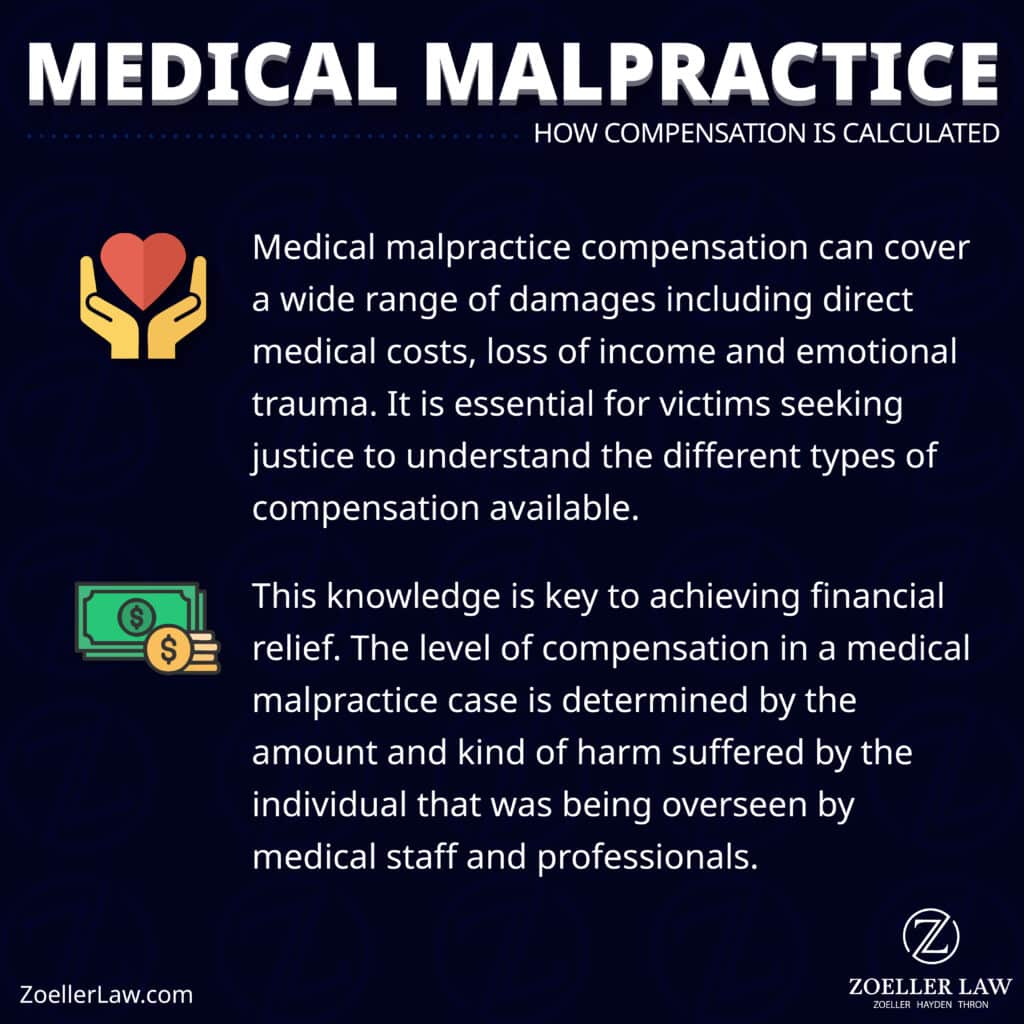When medical care goes wrong, patients and their families often wonder: can you sue a hospital for malpractice? The short answer is yes, but hospital malpractice cases are complex legal matters that require careful consideration of liability, evidence, and timing. Understanding when and how you can hold a hospital accountable for medical negligence can help you make informed decisions about your legal options.
Hospital malpractice occurs when a healthcare facility fails to provide the standard of care expected in the medical community, resulting in patient harm. Unlike individual physician malpractice, hospital liability involves institutional responsibility for policies, staffing, equipment, and overall patient safety.
Understanding Hospital vs. Doctor Liability in Medical Malpractice
One of the most important distinctions in medical malpractice law is understanding when you can sue a hospital directly versus when you should focus on individual healthcare providers. This distinction significantly impacts your legal strategy and potential outcomes.
When Hospitals Can Be Held Liable
Hospitals can face direct liability in several scenarios:
- Negligent hiring or credentialing of physicians and staff
- Inadequate staffing that compromises patient care
- Faulty or poorly maintained medical equipment
- Failure to implement proper safety protocols
- Poor supervision of medical residents and staff
- Deficient infection control measures
- Emergency room negligence when staff physicians are hospital employees
Vicarious Liability and Hospital Responsibility
Hospitals may also be held responsible for the actions of their employees through vicarious liability. If a nurse, technician, or employed physician commits malpractice while working within their scope of employment, the hospital can be sued alongside the individual provider.
However, when independent physicians have admitting privileges but aren’t hospital employees, the hospital typically isn’t liable for the doctor’s individual decisions, unless institutional policies contributed to the harm.
| Key Point | What It Means for You |
|---|---|
| Hospital Malpractice Is Actionable | If a hospital’s negligence harmed you—through errors like misdiagnosis, surgical mistakes, or poor policies—you may have the right to sue. |
| Hospitals Can Be Liable in Two Ways | They may be held responsible for employee mistakes (vicarious liability) or systemic failures such as poor training or unsafe procedures (direct liability). |
| Evidence Is Essential | Medical records, expert testimony, and patient accounts are critical to proving the hospital failed to meet the accepted standard of care. |
| Legal Guidance Increases Success | Hospitals fight malpractice claims aggressively. An experienced attorney improves your chances of building a strong case and securing fair compensation. |
Can a Hospital Be Sued for Malpractice?
Absolutely. Hospitals are subject to malpractice lawsuits just like individual healthcare providers. In fact, hospitals often have deeper pockets and better insurance coverage than individual doctors, making them attractive defendants in malpractice cases.
Hospital malpractice cases commonly arise from:
- Surgical errors involving hospital equipment or protocols
- Medication errors by hospital pharmacy or nursing staff
- Diagnostic delays due to hospital system failures
- Birth injuries in hospital labor and delivery units
- Hospital-acquired infections from poor sanitation
- Patient falls and other preventable injuries
- Wrongful death cases involving hospital negligence
The key is establishing that the hospital itself, not just an individual employee, bears responsibility for the harm that occurred.
What Are the 4 Requirements for Malpractice?
To successfully sue a hospital for malpractice, you must prove four essential legal elements. These requirements form the foundation of any medical malpractice case, whether against a hospital or individual provider.
1. Duty of Care
You must establish that the hospital owed you a duty of care. This is typically the easiest element to prove, as hospitals have a legal obligation to provide competent medical care to patients they admit or treat.
2. Breach of Duty (Standard of Care Violation)
You must demonstrate that the hospital failed to meet the accepted standard of care. This requires showing what a reasonably competent hospital would have done under similar circumstances and how your hospital fell short of that standard.
Expert medical testimony is usually required to establish the appropriate standard of care and explain how the hospital’s actions or inactions constituted a breach.
3. Causation
This element has two parts:
- Cause in fact: The hospital’s negligence actually caused your injury
- Proximate cause: The injury was a foreseeable result of the hospital’s negligence
Causation can be challenging to prove, especially when patients have pre-existing conditions or multiple potential causes for their harm.
4. Damages
You must have suffered actual harm or damages as a result of the hospital’s negligence. Damages can include:
- Medical expenses
- Lost wages
- Pain and suffering
- Permanent disability
- Loss of enjoyment of life
- In wrongful death cases, loss of companionship and support

Hurt or Lose a Loved one to Medical Malpractice? Let Us Help You
Hurt or Lose a Loved one to Medical Malpractice? Let Us Help You
Get your FREE & confidential case review todayHow Much Money Does It Take to Sue a Hospital?
The cost of suing a hospital for malpractice varies significantly based on case complexity, but these lawsuits are expensive undertakings that require substantial upfront investment.
Typical Costs Involved
Expert Witness Fees: $300-$1,000+ per hour for medical expert testimony, often requiring multiple experts
Medical Record Review: $2,000-$10,000 for comprehensive case evaluation
Court Filing Fees: $200-$500, depending on jurisdiction
Depositions and Discovery: $5,000-$25,000 for court reporters, document production, and related expenses
Total Case Costs: Often range from $50,000-$200,000 or more for complex hospital malpractice cases
Contingency Fee Arrangements
Most medical malpractice attorneys work on contingency, meaning you don’t pay attorney fees unless you win. Typical contingency fees range from 33-40% of any settlement or judgment, plus case expenses.
However, you may still be responsible for case costs even if you lose, depending on your agreement with your attorney. Some lawyers advance these costs and only collect them if you win, while others require payment regardless of outcome.
Financial Assistance Options
- Legal funding companies may provide advances against potential settlements
- Pro bono legal services for qualifying low-income patients
- Law school clinics sometimes handle select cases under attorney supervision
Is It Worth Suing for Medical Malpractice?
Deciding whether to pursue a hospital malpractice lawsuit requires careful evaluation of multiple factors beyond just proving negligence occurred.
Cases Worth Pursuing
Strong malpractice cases typically involve:
- Clear negligence with solid expert witness support
- Significant damages exceeding $100,000-$250,000
- Permanent injuries or substantial ongoing medical needs
- Clear causation linking hospital negligence to harm
- Sympathetic plaintiffs who will present well to juries
Cases That May Not Be Worth Pursuing
Consider carefully if you have:
- Minor injuries with limited damages
- Pre-existing conditions that complicate causation
- Weak expert witness support
- Statute of limitations concerns
- Contributory negligence issues
Non-Financial Considerations
Sometimes pursuing malpractice litigation serves purposes beyond monetary compensation:
- Holding hospitals accountable for systemic problems
- Preventing similar harm to other patients
- Obtaining answers about what went wrong
- Achieving closure and validation
However, malpractice litigation is emotionally demanding and can take years to resolve. Consider your personal capacity to handle ongoing legal stress alongside your medical recovery.
How Long Do I Have to Sue a Hospital?
Medical malpractice statutes of limitations vary by state, but most allow 1-3 years from when you discovered or should have discovered the malpractice. Some key timing considerations include:
Discovery Rule
Many states use a “discovery rule,” starting the clock when you reasonably should have known that malpractice occurred, not necessarily when the negligent act happened.
Statute of Repose
Some states impose absolute deadlines (often 5-10 years) from when the negligent act occurred, regardless of when it was discovered.
Special Circumstances
- Minors: Often have extended deadlines, sometimes until age 18 plus additional years
- Mental incapacity: May toll (pause) limitation periods
- Fraud or concealment: Can extend deadlines if the hospital actively concealed malpractice

Medical Treatment Gone Wrong? Let Us Help You
Medical Treatment Gone Wrong? Let Us Help You
Get your FREE & confidential case review todaySteps to Take If You Suspect Hospital Malpractice
If you believe you’ve been a victim of hospital malpractice, taking prompt action protects your legal rights:
- Obtain complete medical records from the hospital and all providers
- Document your injuries and ongoing symptoms
- Keep detailed records of expenses and lost income
- Consult with experienced malpractice attorneys for case evaluation
- Don’t delay – statutes of limitations are strict and unforgiving

Hurt or Lose a Loved one to Medical Malpractice? Let Us Help You
Hurt or Lose a Loved one to Medical Malpractice? Let Us Help You
Get your FREE & confidential case review todayFrequently Asked Questions
What constitutes hospital malpractice?
Hospital malpractice is defined by a patient’s harm resulting from the hospital’s inability to maintain an appropriate standard of care, which encompasses errors in diagnosis, treatment, and post-operative care. This breach of duty can lead to significant consequences for the patient.
How can I prove medical negligence?
To prove medical negligence, you must gather comprehensive evidence, including medical records and expert testimony, to establish that the standard of care was not met and that this breach directly caused the injury. This clear linkage is essential for a successful claim.
What types of compensation can I claim in a medical malpractice case?
In a medical malpractice case, you can claim compensation for economic damages such as medical expenses and lost wages, alongside non-economic damages for emotional distress and diminished quality of life. This multifaceted approach ensures that all aspects of your suffering are addressed.
What is the statute of limitations for filing a malpractice claim?
The statute of limitations for filing a malpractice claim varies by state, making it crucial to seek legal advice to ensure your claim is filed within the appropriate timeframe. Failure to do so may jeopardize your case.
What should I expect during court proceedings for a medical malpractice case?
You should expect that court proceedings for a medical malpractice case will be lengthy and complex, necessitating skilled legal representation to effectively advocate for your interests.
Related Articles














